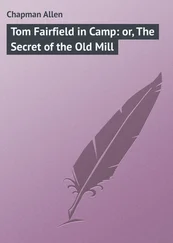L. Camp - The Wheels of If
Здесь есть возможность читать онлайн «L. Camp - The Wheels of If» весь текст электронной книги совершенно бесплатно (целиком полную версию без сокращений). В некоторых случаях можно слушать аудио, скачать через торрент в формате fb2 и присутствует краткое содержание. Жанр: Книги. Описание произведения, (предисловие) а так же отзывы посетителей доступны на портале библиотеки ЛибКат.
- Название:The Wheels of If
- Автор:
- Жанр:
- Год:неизвестен
- ISBN:нет данных
- Рейтинг книги:4 / 5. Голосов: 1
-
Избранное:Добавить в избранное
- Отзывы:
-
Ваша оценка:
- 80
- 1
- 2
- 3
- 4
- 5
The Wheels of If: краткое содержание, описание и аннотация
Предлагаем к чтению аннотацию, описание, краткое содержание или предисловие (зависит от того, что написал сам автор книги «The Wheels of If»). Если вы не нашли необходимую информацию о книге — напишите в комментариях, мы постараемся отыскать её.
The Wheels of If — читать онлайн бесплатно полную книгу (весь текст) целиком
Ниже представлен текст книги, разбитый по страницам. Система сохранения места последней прочитанной страницы, позволяет с удобством читать онлайн бесплатно книгу «The Wheels of If», без необходимости каждый раз заново искать на чём Вы остановились. Поставьте закладку, и сможете в любой момент перейти на страницу, на которой закончили чтение.
Интервал:
Закладка:
Park suddenly realized that events had put him in a suspect position. If he didn't want himself and his cogs to be damned as copperheads, or the Vinland equivalent, he'd have to outshout the Rubies for unity, down with the rebels, etcetera.
Well, he might as well do a good job of it.
That afternoon the guards at the Psychophysical Institute were astonished to have their sanctuary invaded by a squad of uniformed knicks with the notorious Allister Park at their head flourishing a search warrant. The charge was violation of the fire ordinances—in a building made almost entirely of tile, glass, and reinforced concrete.
"But, but, but!" stuttered Dr. Edwy Borup. Park merely whisked out another warrant, this time for the arrest of Joseph Noggle.
"But, but, you can't stop one of my patients! It's—uh—illegal! I'll call Mayor Greenfield!"
"Go ahead," grinned Park. "But don't be surprised if you get a busy signal." He had taken the precaution of seeing that all the lines to the mayor's office would be occupied at this time.
"Hello, Noggle," said Park.
"Haw. Who are you? I think I've met you—let me see—"
Park produced an air pistol. "I'm Allister Park. You'll figure out where you met me soon enough, but you won't talk about it. I'm glad to see my figuring came out right. Can you start a man's wheel today? Now?"
"I suppose I could. Oh, I know who you are now—"
"Nay comments, I said. You're coming along, brother, and doing just as you're told."
The next step was when Park walked arm in arm with Noggle into the imposing executive building. Park's standing as a powerful boss saw him through the guards and flunkeys that guarded the Bretwald's office on the top floor.
The Bretwald looked up from his desk. "Oh, haw, Thane Park. If you're going to nag me about that mobilization order, you're wasting your time. Who's—eeee! Where am I? What's happened to me? Help! Help!"
In bounded the guards, guns ready. Park faced them sadly. "Our respected Bretwald seems to have had a mental seizure," he said.
The guards covered the two visitors and asked Kedrick what was the matter. All they could get out of Kedrick was: "Help! Get away from me! Let me out! I don't know who you're talking about. My name's not Kedrick, it's O'Shaughnessy!"
They took him away. The guards kept Park and Noggle until a message from the acting Bretwald said to let them go.
* * *
"By the brazen gates of Hell!" cried Park. "Is that all?"
"Yep," said the new Secretary of War. "Douglas was a Brahtz man; hence he saw to it that the army was made as harmless as possible before he skipped out."
Park laughed grimly. "The Secretary of War sabotages—"
"He does what?"
"Never mind. He raises hell with, if you want a more familiar expression. Raises hell with the army for the benefit of his party, with the Dakotians about to come whooping in. I suppose it oughtn't to surprise me, though. How many can we raise?"
"About twenty thousand in the burgish area, but we can arm only half of them rickly. Most of our quick-fire pipes and warwains have been hurt so it'll take a month to fix them."
"How about a force of Skrellings?"
The Secretary shrugged. "We can raise 'em, but we can't arm them."
"Go ahead and raise 'em anyway."
"All right, if you say so. But hadn't you better have a rank? It would look better."
"All right. You make me your assistant."
"Don't you want a commission?"
"Not on your life! Your generals would go on strike, and even if they didn't I'd be subject to military law."
* * *
The army was not an impressive one, even when its various contingents had all collected at what would have been Pittsburgh if its name hadn't been the lovely one of Guggenvik. The regulars were few and unimpressive; the militia were more numerous but even less prepossessing; the Skrelling levy was the most unmilitary of all. They stood around with silly grins on their flat brown faces, and chattered and scratched. Park thought disgustedly, so these are the descendants of the noble red man and the heroic viking! Fifty years of peace had been a blessing to Vinland, but not an altogether unmitigated one.
The transport consisted of a vast fleet of private folkwains and goodwains (busses and trucks to you). It had been possible to put only six warwains in the field. These were a kind of steam-driven armored car carrying a compressor and a couple of pneumatic machine guns. There was one portable liquid-air plant for charging shells and air bombs.
The backwardness of Vinland chemistry compared to its physics caused a curious situation. The only practical military explosives were a rather low-grade black powder, and a carbon-liquid-oxygen mixture. Since the former was less satisfactory as a propellant, considering smoke, flash, and barrel-fouling, than compressed air, and was less effective as a detonant than the liquid air explosive; its military use was largely confined to land mines. Liquid oxygen, however, while as powerful as trinitrotoluol, had to be manufactured on the spot, as there was no way of preventing its evaporation. Hence it was a very awkward thing to use in mobile warfare.
Park walked into the intelligence tent, and asked the Secretary of War: "What do you think our chances are?"
The Secretary looked at him. "Against the squires, about even. Against the Dakotians, one to five. Against both, none." He held out a handful of dispatches. These told of the success of the Sons of the Vikings in extending their hold in the southwest, not surprising considering that the only division of regulars in that area were natives of the region and had gone over to the rebels. More dispatches described in brief fragments the attack of a powerful and fast-moving Dakotian army west of Lake Yanktonai (Michigan). The last of these was dated 6 P.M., June 26th, the preceding day.
"What's happened since then?" asked Park.
"Don't know," said the Secretary. Just then a message came in from the First Division. It told little, but the dateline told much. It had been sent from the city of Edgar, at the south end of Lake Yanktonai.
Park looked at his map, and whistled. "But an army can't retreat fifty miles in one day!"
"The staff can," said the Secretary. "They ride."
Further speculation about the fate of the First Division seemed unnecessary. The one-eyed Colonel Montrose was dictating an announcement for the press to the effect that: "Our army has driven off severe Dakotian attacks in the Edgar area, with heavy losses to the foe. Nine Dakotian warwains were destroyed and five were captured. Other military booty included twenty-six machine-pipes. Two foeish airwains were shot down. . . ."
Park thought, this Montrose has a good imagination, which quality seems sadly lacking in most of the officers. Maybe we can do something with him—if we're still here long enough. . . .
The Secretary pulled Park outside. "Looks as though they had us. We haven't anything to fick with. Not even brains. General Higgins is just an easygoing parade-ground soldier who never expected to have to shoot at anybody in his life. For that matter neither did I. Got any ideas?"
"Still thinking, brother," said Park, studying his map. "I'm nay soldier either, you know; just a thingman. If I could give you any help it would be political."
"Well, if we can't win by fickting, politics would seem to be the only way left."
"Maybe." Park was still looking at the map. "I begin to have a thock. Let's see Higgins."
* * *
Fortunately for Park's idea, General Higgins was not merely easygoing; he was positively comatose. He sat in his tent with his blouse unbuttoned and a bottle of beer in front of him, serene in the midst of worry and confusion.
"Come in, thanes, come in," he said. "Have some beer. Piff. Got any ideas? Blessed if I know where to turn next. Nay artillery, nay airwains to speak of, nay real soldiers. Piff. Do you guess if we started fortifying New Belfast now, it'd be strong enough to hold when we were pushed back there? Nobody knows anything, piff. I'm supposed to have a staff, but half of 'em have got lost or sneaked off to join the rebels. Blessed if I know what to do next."
Читать дальшеИнтервал:
Закладка:
Похожие книги на «The Wheels of If»
Представляем Вашему вниманию похожие книги на «The Wheels of If» списком для выбора. Мы отобрали схожую по названию и смыслу литературу в надежде предоставить читателям больше вариантов отыскать новые, интересные, ещё непрочитанные произведения.
Обсуждение, отзывы о книге «The Wheels of If» и просто собственные мнения читателей. Оставьте ваши комментарии, напишите, что Вы думаете о произведении, его смысле или главных героях. Укажите что конкретно понравилось, а что нет, и почему Вы так считаете.











